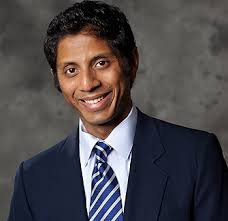Listening for Equality
 Shri Narayanan, the Niki and Max Nikias Chair in Engineering and Professor in the Ming Hsieh Department of Electrical and Computer Engineering, is a really good listener.
Shri Narayanan, the Niki and Max Nikias Chair in Engineering and Professor in the Ming Hsieh Department of Electrical and Computer Engineering, is a really good listener.
He and his lab, the Signal Analysis and Interpretation Laboratory (SAIL), build tools to analyze voice, tone and facial expressions to better understand who is speaking, what are they saying and how they are feeling. Narayanan’s team aspires to create technologies that are inclusive and that enable inclusion. “That means the actual technology must work for anyone, in any context, regardless of who they are,” Narayanan explained. “Only technology built in this way can truly and effectively create awareness and support diversity and inclusion.”
One of SAIL’s tools, the USC Speech Pipeline, was recently deployed at the United Nations’ International Telecommunications Union’s (ITU) policy-making event.
The tool found that while 27 percent of the attendees were women, they accounted for nearly 25 percent of the speaking time. But most speakers at an event like this are in leadership positions. When you consider that less than 20 percent of leadership positions were filled by women, it seems women were more likely to take the floor than men. Although the study could benefit from more research, these are promising findings.
“We have been very pleased to collaborate with Professor Narayanan’s group,” said Fernando Rivera, ITU coordinator of corporate strategic planning. The advanced software tools developed by SAIL allow ITU to understand the percentage of speaking time of male and female participants during ITU’s top policy-making events, and should in the future allow us to better understand power dynamics, sentiment and interactions, and content of these meetings from the gender perspective.”
“Whether it’s in business, a policy debate or everyday societal interactions, everyone’s voice needs to be heard,” Narayanan said. “Parity in contribution to a conversation is part of what ensures that our society remains productive, inclusive and energetic.”
Narayanan remains committed to further exploration of inclusion and diversity in society through developing inclusive technologies and improving the capabilities and reach of computational media intelligence.



